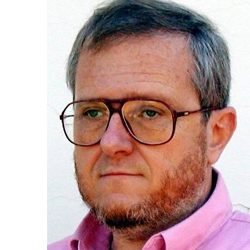
Giancarlo Losi
ICAR/08 - Structural mechanics
Education:
Ph.D., Aeronautics. November, 1989. California Institute of Technology
Thesis: Nonlinear Thermoviscoelastic Behaviorof Polymers
Advisor: Wolfgang G. Knauss
M.S., Aeronautics. June, 1985. California Institute of Technology
Laurea cum laude, Aeronautical Engineering, May, 1983. Politecnico di Torino, Torino, Italy
Thesis: Corrective States of Elementary Theoriesin Reinforced Monocoque Structures Advisor: Ettore Antona
Research experience:
January 1992 to present. Assistant Professor – Politecnico di Milano, Italy
– Constitutive Behavior of Heterogeneous media: Investigation on the macroscopic behavior of inhomogeneous media, with particular reference to the inelastic behavior of damaged concrete. The overall behavior of the composite material is represented by a mechanical analogy incorporating the constitutive features of the constituent phases.
– Damage Mechanics: A phenomenological constitutive model was developed to encompass the effect of three-dimensional damage growth on materials undergoing non- proportional strain or stress histories.
– Material Instabilities: Development of an efficient numerical procedure for the detection of lo- calization conditions in elastoplastic solids. The effectiveness is achieved through a method of detecting localization which does not involve the search for the minima of the determinant of the acoustic tensor.
December 1989 to November 1990. Research Fellow – California Institute of Technology
June 1985 to November 1989. Research Assistant – California Institute of Technology
– Solid Mechanics: Development of numerical algorithm based on a finite element formulation for the assessment of transient and residual thermal stresses in materials with time and temperature dependent properties. Construction of algorithms for the interconversion of viscoelastic functions.
– Polymer Mechanics: Development of a nonlinear viscoelastic model for the characterization of polymeric behavior above and below the glass transition temperature. Viscoelastic behavior is interpreted within the framework of continuous Markov processes, allowing predictions for the change in macroscopic properties effected by passing across the glass transition. Applications to problems of adhesive bonding and polymeric matrix composite materials constitute an immediate extension of the developed model.
– Fracture Mechanics: Investigation of the effects of nonlinear material behavior on the steady state propagation of a crack in a polymeric adhesive. The elasticity solution in terms of complex potentials is used as the main tool in extensive numerical calculations which pursue the understanding of the effects of nonlinear viscoelastic behavior at the crack tip on the macroscopic failure process.
Teaching experience:
October 1985 – June 1986. Teaching Assistant, Mech. of Solids and Structures
January-March 1987. Teaching Assistant, Experimental Methods
October-December 1987. Teaching Assistant, Experimental Methods
November 1989 – June ’90. Assistant Instructor, SCUBA – California Institute of Technology
January 1992 to present Assistant Professor, Mechanics of Materials Polytechnic School of Milano, Italy
Industrial experience:
October 1983 to July 1984. Staff Engineer – Structural Dynamics and Unsteady Aerodynamics Division, Fighter Aircraft Group, Aeritalia Società Aerospaziale Italiana, Torino, Italy.
Investigated numerical methods to predict flutter in aircraft structures; developed software to interface structural dynamics and unsteady flow fields around aircrafts.
Summer 1981. Engineer in Training – Nationaal Lucht-en Ruimtevaartlaboratorium (NLR)Anthony Fokkerweg 2. 1059 CM Amsterdam, The Netherlands.
Worked in testing and calibration of multiport Pitot probes for use in wind tunnels.
